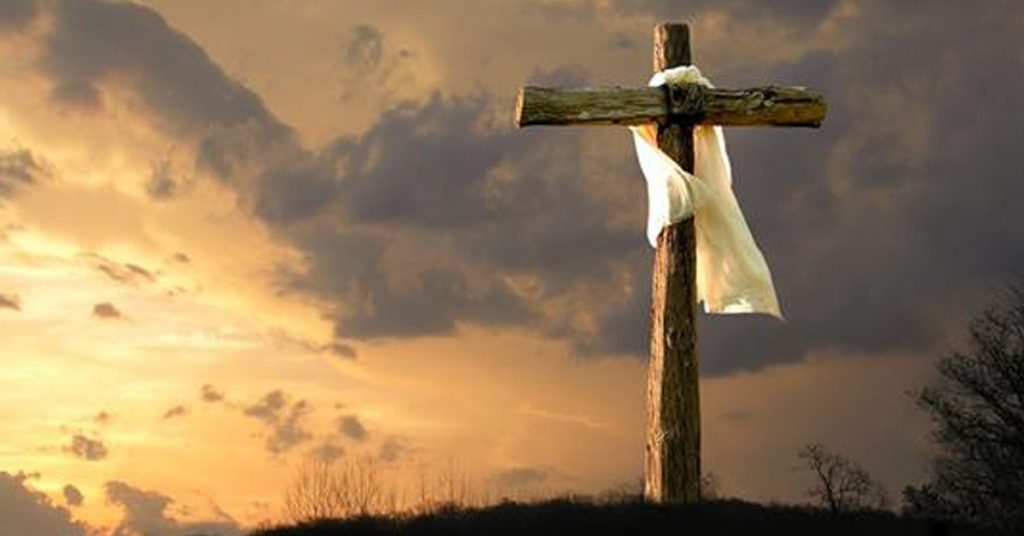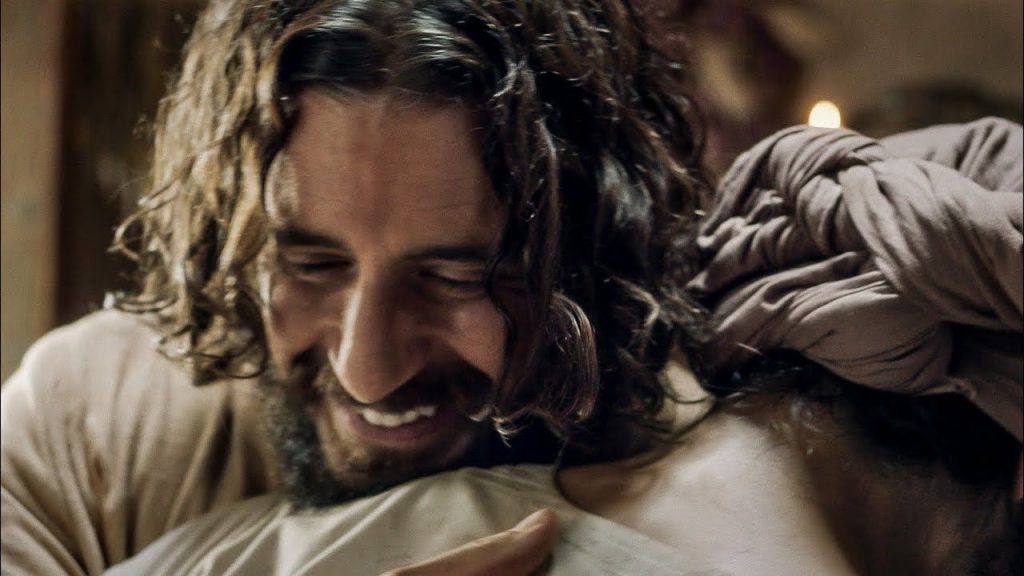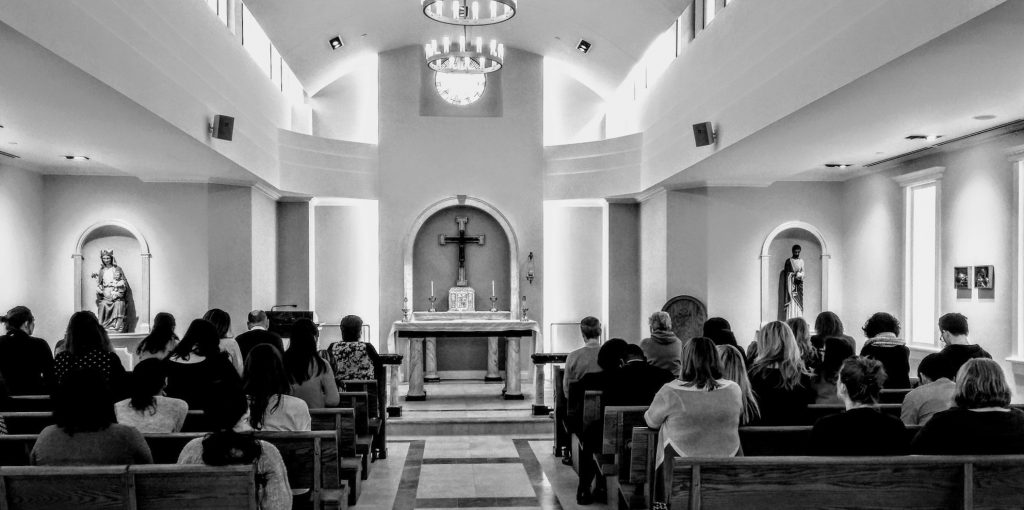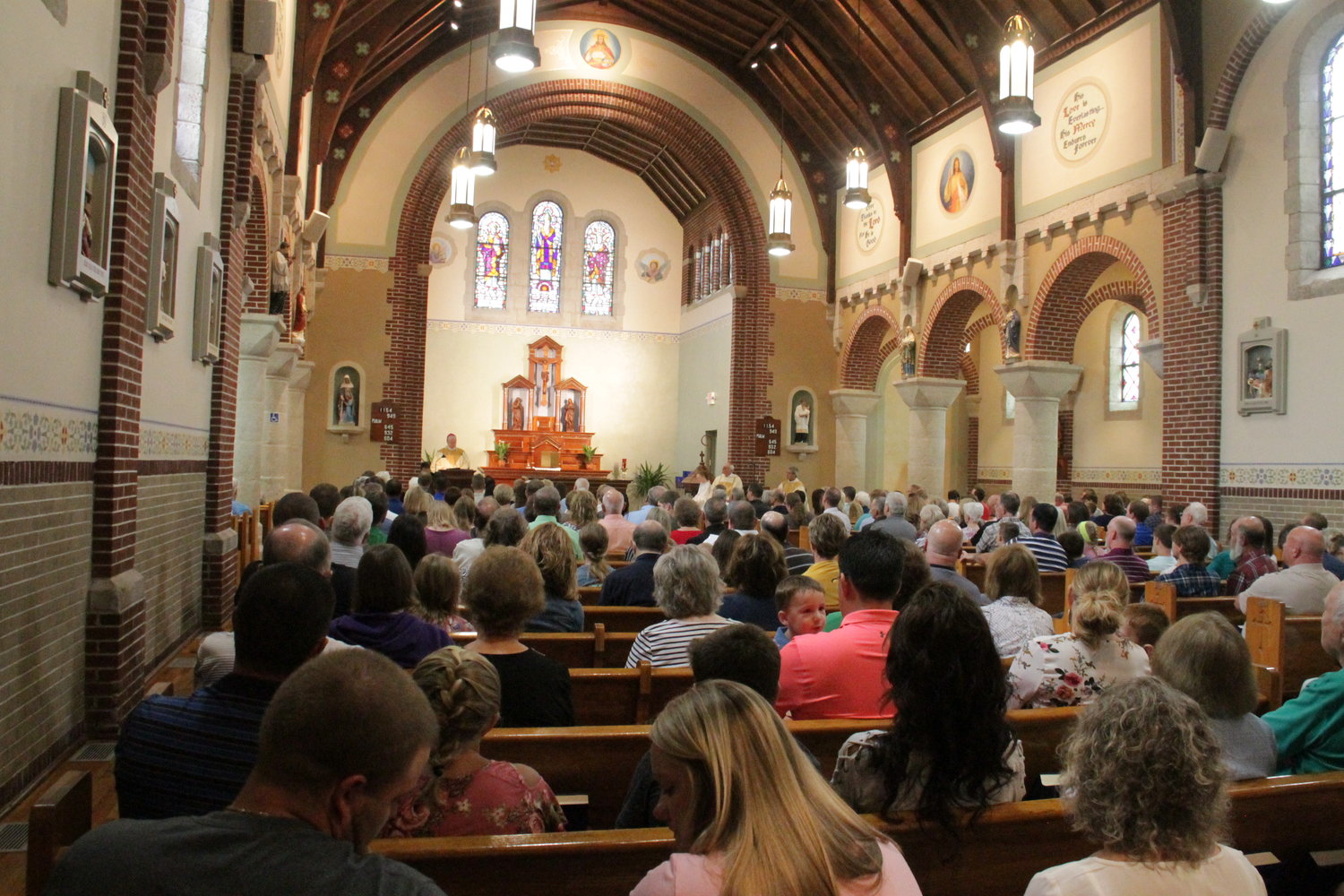I have had several conversations with Bishops and priests who are busy planning the return of the regular celebration of Mass on Sundays. I have been inspired by their hope for the future, their courage to try new things, their focus on missionary activity, and their commitment to seeing COVID recovery through the lens of opportunity. These pastoral leaders are asking a very important question, “What does the return to Sunday mass make possible?”
This is a question we should all be asking.
[bctt tweet=”As we return to the regular celebration of Mass, pastoral leaders are asking an important question. What does the return to Sunday Mass make possible? ” username=”BrettPowellorg”]
Over the course of the next few weeks, I will share a selection of the ideas I am hearing from these pastoral leaders. I hope their insights will be a blessing for you and your own communities.
Kerygma, Kerygma, Kerygma
COVID has shone a great big spotlight on the lack of engagement in our parishes. It is hard but necessary to acknowledge that most baptized Catholics, even many that attend Sunday Mass, are disengaged at a heart level.
We have long made the assumption that attending Mass was evidence of something deeper – engagement. It wasn’t. Attendance and engagement are not the same things. Everyone that is engaged will attend Mass, but not everyone that attends Mass is engaged.
[bctt tweet=”We assume that attending Mass is evidence of something deeper – engagement. It isn’t. Everyone that is engaged will attend Mass, but not everyone that attends is engaged. ” username=”BrettPowellorg”]
Most of the bishops and priests I am speaking to about the return to Sunday Mass are planning to preach the Kerygma as often and passionately as possible during the Sunday homily. Pope Francis has said many times that the Kerygma comes first before all other messages. The Kerygma was not just chronologically the first proclamation of the Gospel 2,000 years ago, the message that was eventually replaced by more theologically deep and important messages. No, the Kerygma is first in terms of importance, and always will be. No theological or catechetical message is more important.

If preaching the Kerygma is most important and can never stop, then the Kerygma must return to a central place within the Sunday homily.
Of course, pastoral leaders that are committed to mission also see the need to launch evangelizing programs outside Sunday Mass. Programs like ALPHA, CCO faith studies and the Life in the Spirit seminars. These programs are designed to help people have a personal encounter with Jesus Christ, not a mere paradigm, but the Living Lord (Saint John Paul II).
What does the Kerygma have to do with engagement? Everything! Conversion is the key to engagement. A personal, meaningful, life-changing encounter with Jesus Christ is the animating force that fuels authentic engagement. Saint John Paul II defined conversion as, “Accepting by a personal decision, the saving sovereignty of Jesus Christ and becoming His disciple.”
[bctt tweet=”What does the Kerygma have to do with engagement? Everything! Conversion is key. A personal, life-changing encounter with Jesus Christ is the force that fuels authentic engagement.” username=”BrettPowellorg”]
The Church must never tire of proclaiming this most fundamental message and invite people to receive it as a gift. “Sometimes even Catholics have not had the opportunity to experience Christ personally, not as a mere paradigm but the Living Lord” (Saint John Paul II). Each Sunday homily is an opportunity to proclaim the basic Gospel message and invite hearers to repent of their sin, receive the good news, and invite Jesus Christ into their lives by an act of faith.
In Redemptoris Missio, Saint John Paul II wrote, “In the complex reality of mission, the initial proclamation has a central and irreplaceable role. Faith is born of preaching, and every ecclesial community draws its origin and life from the personal response of each believer to that preaching. The subject of proclamation is Christ who was crucified, died, and is risen: through him is accomplished our full and authentic liberation from evil, sin and death; through him, God bestows “new life” that is divine and eternal. This is the ‘Good News’ which changes man and his history, and which all peoples have a right to hear” (italics added by BP).
[bctt tweet=”Saint John Paul II said that faith is born of preaching, and every ecclesial community draws its origin and life from the personal response of each believer to that preaching.” username=”BrettPowellorg”]
We must never tire of proclaiming the sweet, powerful message of salvation in the Kerygma. May it be the central message in every parish, every Sunday, and in every homily!
Make EVERY Sunday, Testimony Sunday
Before COVID, many parishes were beginning to offer short, personal testimonies on a regular basis (e.g. once a quarter or even once a month). If a parish has 500 families registered, it is quite reasonable to have one person share a testimony every Sunday throughout the year, a different parishioner every week.
This will require a little bit of scheduling and testimony training, but it can be done. If done well, it might be the most important new initiative post-COVID.

Regular testimonies can become a tremendous blessing for your community in four ways:
- Testimonies are a powerful method for sharing the Kerygma. Watch this scene from The Chosen to see how powerful it is when people speak, even briefly, about how an encounter with Jesus changed their life.
- Testimonies are a very effective way to normalize the conversion experience and promote Pope Francis’ culture of encounter. Currently, we are normalizing a culture of non-encounter by rarely having everyday parishioners speak about the faith as a personal relationship.
- Testimonies deepen the faith of the people sharing their story. Saint John Paul II often said, “Faith is strengthened when it is given to others.”
- Hearing a clearly communicated personal testimony stirs important questions in the hearts of those listening, “Where am I at in my relationship with God?” and “If I can know God in a personal way too, what does this look like?” and “Have I made that kind of decision to put Jesus at the centre of my life?” or “How can I learn to pray like that?”
[bctt tweet=”A clearly communicated personal testimony stirs important questions in those listening. Where am I at in my relationship with God? If I can know God in a personal way too, what does this look like?” username=”BrettPowellorg”]
Having a testimony after the final blessing during Sunday Mass would only add four to five minutes to every Mass. It might take a few weeks for congregants to get used to this weekly routine, but if the stories are compelling and meaningful, people will not only tolerate them, they will look forward to the faith-sharing every week.
Four to five minutes a week is a pretty small investment for something that will bear a lot of fruit. We are blessed in the Archdiocese of Vancouver to have the Proclaim movement, launched in October 2019. Through Proclaim, there is training and formation available for people who want to learn how to share their testimony. Proclaim can train parish leaders to work with their parishioners to develop their testimonies.
Parish Reset
Prior to the lockdown in early 2020, our family had become slaves to an unsustainable schedule of sports and activities.
All our kids compete in elite athletics. We love to see them explore and develop their God-given talents. Sport provides an incredible environment for personal development which I wrote about here. But five kids playing rep sports can keep any family too busy going from one activity to another.
Once COVID restrictions were put in place, we saw something we hadn’t seen in a while – time in our schedule! Margin returned to the family. Instead of one activity overlapping with another all night long, schedules were cleared or significantly reduced.
What did we do with the extra time put back into our schedule? We had more meals together. We enjoyed extended and meaningful conversations as a family. We prayed together more than we did before. And we enjoyed seeing layers of personality spring forth from the kids in a safe, slow-paced environment.
We do not want to go back to those crazy times. Saying “yes” to the family as a top priority can only endure when we defend that decision and say a thousand times, “No!” to less important things.

Parishes are in a similar space. Prior to COVID, many pastors were sensing that their parish had become too busy. Being a busy parish is not a bad thing but being busy with the wrong things inevitably keeps a parish from taking steps forward in mission while slumbering in maintenance.
[bctt tweet=”Prior to COVID, many parishes had become too busy. Being busy is not a bad thing but being busy with the wrong things keeps a parish from taking steps forward in mission while slumbering in maintenance. ” username=”BrettPowellorg”]
How do Parishes become too busy with the wrong things? By adding more and more activities without terminating anything. Years and years of adding with no pruning had most parishes trying to manage multiple priorities and plans, unsure how one activity connected to another except that it all happened in the same parish buildings.
[bctt tweet=”Years of adding with no pruning had most parishes over-stretched and unsure how one activity connected to another except that it all happened in the same parish buildings. ” username=”BrettPowellorg”]
The key to eliminating non-essentials is to clarify what is most important. Every parish is called to be a missionary outpost, a school of prayer, and a training centre in holiness. Dedicating parish resources (time, money and calendar) should start with those key areas of focus.
As parishes get back to Sunday Mass and regular scheduling, now would be a good time to think and pray about how to prune activities at the parish. Nothing, except the sacraments, especially the public celebration of the mass, has to be re-started. Everything should be evaluated through the three lenses: the evangelizing mission of making disciples, schools of prayer, training centres in holiness.
[bctt tweet=”As parishes get back to Sunday Mass and regular scheduling, now would be a good time to think and pray about what and how to prune activities at the parish. ” username=”BrettPowellorg”]
The leaders I have been speaking to are discerning which activities they will start again and those they will not re-launch. These pastoral leaders are developing evaluative language such as “Is this on-mission, disciple-making, community-building, conversion-deepening, outreach-engaging?” If the initiative aligns to one or more of those key evaluative lenses, it is considered. If not, it immediately gets taken off the list. No messing around.
A wise man once said, “When opportunity comes, it is too late to prepare.” The return to Sunday Mass after COVID is the opportunity we have been looking for in the Church. Let us see and seize this great moment to get back on mission, to clarify what matters most and to prune the local parish of all secondary pursuits.
This alone will make more room for the New Evangelization. We only have one opportunity to redefine priorities.
Now is that time.


Brett, so powerful. So simple and profound. Let us proclaim Jesus. Let us focus on the Kerygma – the most important thing as we return to Church.